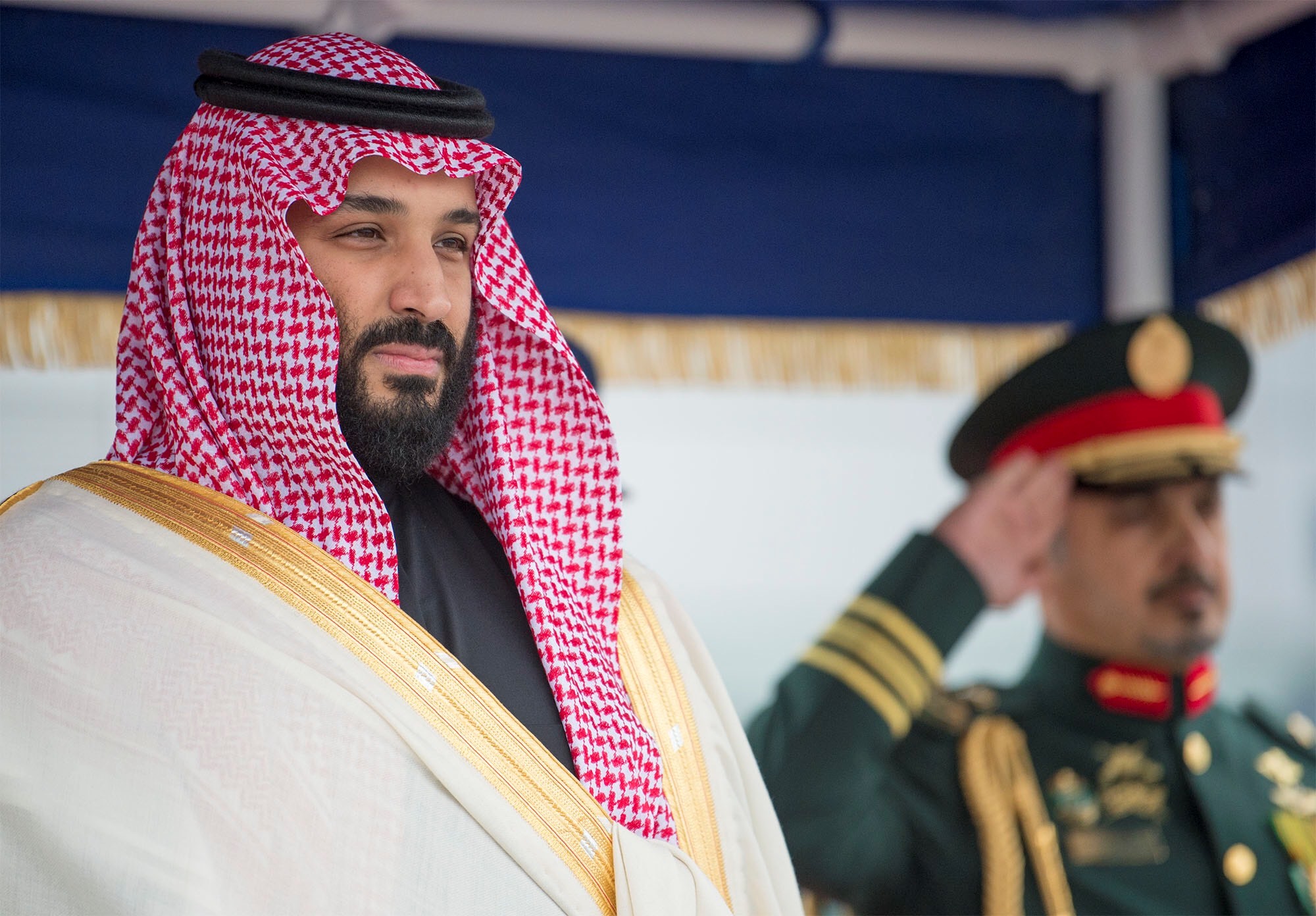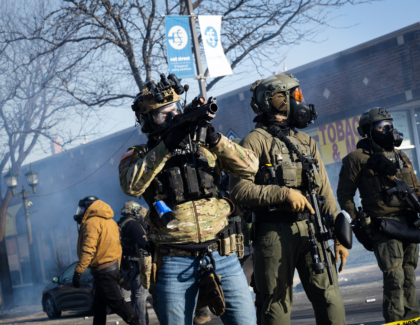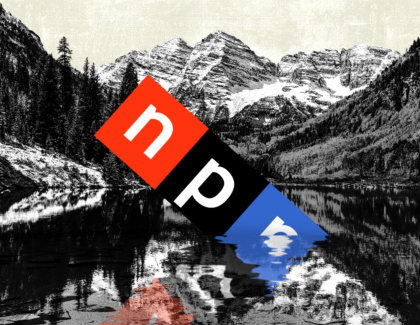Sign up for the daily CJR newsletter.
Mohammed bin Salman, the 32-year-old heir-apparent to the Saudi throne, sat down with CBS’s Norah O’Donnell for a special edition of 60 Minutes that aired Sunday, the eve of his hotly anticipated visit to the US this week. “MBS”—who courted global media attention late last year when his supposed crackdown on corruption shuttered hundreds of princes and billionaires in Riyadh’s Ritz-Carlton hotel—agreed to a first US TV interview as part of an ongoing charm offensive. He projected the carefully manicured image of a dynamic reformer who’s hard at work liberalizing religious mores, diversifying the economy, and shaking up Saudi Arabia’s sclerotic institutions to end decades of graft.
That image isn’t a total fabrication. There’s no denying MBS’s chutzpah in grabbing power from the old guard and steering his country down a new path. And he is tweaking Saudi’s prevailing hardline strain of Wahhabi Islam, for example by allowing women to attend soccer matches, ascend to more prominent positions in business and politics, and, starting in June, drive cars.
But one man’s progressive is another man’s tyrant. The Saudi press is all but barred from questioning the crown prince’s motives. And in the US and beyond, reporting on MBS’s turn in the spotlight has been focused largely on the elite. Even where coverage has been nuanced or skeptical, its obsession with government spin and (literal) palace intrigue underplays how deeper social forces—in a vast country of around 30 million people—have crafted the current moment.
“[MBS] wants to control the whole scene: He’s a transformer, he wants to have a monopoly on the narrative, on the ideas that are being exchanged in Saudi Arabia. And right now he does have total control,” says Jamal Khashoggi, a veteran Saudi journalist who lives in exile in the US and regularly blogs for The Washington Post. “The American media should not see the cup half full—see only the reform. Yes, he’s fulfilling a promise to purge radicalism in Saudi Arabia. But at the same time he’s not allowing any form of expression, except expression that supports him.”
ICYMI: Twitter users were shocked by a word Trump used in a Saturday tweet
In interviews with 15 reporters and experts on Saudi Arabia, CJR heard repeatedly that coverage of MBS’s reforms could be improved if foreign correspondents got out into the country and folded ordinary Saudi voices into their stories. Many say that although MBS has driven the narrative, his reforms have been shaped by—and will continue to respond to—profound generational, religious, and socioeconomic currents bubbling up from Saudi civil society. It’s an important responsibility: While foreign journalists don’t have it easy in Saudi, domestic media feel the country’s terrible press climate much more acutely.
No one expects journalists writing on Saudi Arabia to emulate the soul-searching “heartland journalism” in vogue in the US since Donald Trump’s election. And the kingdom lacks—for political and cultural reasons—the democratic institutions that make it easier for reporters to gauge public opinion. “You don’t get those types of open moments that you might even in semi-authoritarian regimes, where you’re having an election and people are talking about politics,” says F. Gregory Gause, a Saudi expert at Texas A&M University.
But reporters could learn, for instance, from coverage of Iran, which tends to engage more directly with public opinion, despite obstacles to access. And while New York Times columnist Thomas Friedman was widely pilloried (including, on Twitter, by this reporter) for calling MBS’s program an “Arab Spring, Saudi-style” back in November, the comparison actually offers a useful suggestion for the press. As a wave of protests convulsed the Middle East from the ground up in 2011, Western reporters engaged anew with Arab public opinion. They could mimic this curiosity in coverage of Saudi reforms, instead of treating them as a largely top-down initiative.
“You need access to all the diversity of Saudi Arabia in order to report accurately on where [MBS] may be succeeding and where he may be failing,” says Steve Coll, who reported his book The Bin Ladens from inside the kingdom (Coll is dean of Columbia Journalism School). “[His success] will be shaped by the reaction of a very large and young population to what he’s doing. It’s very easy to say the youth are with him because he’s young and he’s carrying some of their wish list forward. But it’s a diverse country. These are treacherous ideas for a lot of Saudis.”
US-based news outlets have offered some sharp stories on MBS. The New York Times reported last week that elite Saudis incarcerated in the Ritz-Carlton were physically abused and coerced into handing the crown prince billions in cash and assets; a different account from the deluxe prisoner experience advertised by the regime. And during Sunday’s 60 Minutes, O’Donnell pushed MBS tenaciously on the Ritz-Carlton episode, human rights, and his regional foreign policy, and made an admirable effort to include vox from his subjects.
Coverage of Saudi Arabia, however, has long focused on princes in Lamborghinis, not ordinary Saudis on the sidewalk. “It is very top heavy, and that’s sort of how the Saudi [regime] prefers it,” says Coll. “Through the accident of being assigned there and wandering round and traveling, I felt like the cartoon version of Saudi Arabia—women can’t drive, petrol power, the ceremony of the sword dance, and the elite royal family coverage—was just so inadequate in comparison to the richness of the country….You look at the coverage today and it’s basically, ‘Royal family reform, women can drive.’”
Of the 43 stories on the Times’ Saudi Arabia landing page since January 1, about half have focused on the regime’s foreign or regional maneuvers (many of these have been about Saudi military involvement in neighboring Yemen), while more than a third have centered on MBS’s domestic reform program. Outlets like The Wall Street Journal and CNN have also reported regular financial stories, for example on Saudi deliberations over where to float its state oil heavyweight, Aramco.
The focus of the coverage is not surprising: The US news market has scant space for deeply reported foreign pieces, period. Datelines are rarely inside Saudi Arabia, and those that are almost never stray from Riyadh or, at most, Jeddah—the Red Sea port widely trafficked as an international gateway for pilgrims heading to Mecca. “That’s like going to the United States, and going to New York, Washington, and San Francisco, and thinking you’ve been to the United States. If you didn’t go to Arkansas, you haven’t been in the United States,” says Thomas Lippman, former Middle East bureau chief for The Washington Post. And society-facing stories about government austerity measures, for example, get pushed to the financial pages, relying on analysts to parse public opinion, rather than hearing Saudis speak for themselves.
“You look at the coverage today and it’s basically, ‘Royal family reform, women can drive.’”
“Foreign correspondents, just because it’s comfortable, tend to graduate to the educated classes, professors, people who’ve spent time abroad, the hip youth in their twenties who are making cool YouTube videos,” says New York Times reporter Ben Hubbard. “Foreign reporters tend to invest less time [for example] in getting to know devout religious people who probably have a very different perspective on what they think is unique about the kingdom.”
Hubbard, who is based in Beirut, often does write more intimate features (for example, on women’s rights) when he travels to Saudi to report—trying whenever possible to get off the beaten tracks of establishment Riyadh and cosmopolitan Jeddah. It’s a tough ask. But doing so, he says, shows MBS’s reform push may not be the progressive victory Saudi propagandists claim.
“I think there’s probably more excitement [in Jeddah] about some of the social reforms the crown prince is trying to bring about. You go to a place like Buraydah, I think there’s a little bit more resistance,” says Hubbard, referring to a smaller city northwest of Riyadh. “Some of that is cultural, because it’s a more socially conservative environment, where some of the older Arabian traditions, Bedouin traditions, are still part of people’s lives. And a lot of it is just religion: A lot of people have very strong religious views and commitments that they might feel some of these reforms don’t exactly go hand-in-hand with.”
As hard as Western reporters find covering the kingdom, domestic outlets have it much tougher. Many of them are either tightly leashed by the regime, or cowed into self-censorship by threats of reprisal. Saudis who venture criticism often face harsh consequences. After 2011, alarmed that the Arab Spring had caused other regional governments to buckle, the Saudi regime further tightened longstanding state regulations on media content and ownership. In a case that garnered international attention, the blogger Raif Badawi was arrested in 2012 on apostasy charges for criticizing the country’s clerical establishment. He was sentenced to repeated public lashings, the first of which were administered in 2015.
ICYMI: “When a journalist dies, such questions, while on everyone’s mind, are often asked in a whisper.”
Despite his promises to reform other aspects of Saudi society, freedom of the press has, if anything, deteriorated since MBS grabbed the power behind the throne three years ago. He recently began a fresh crackdown on dissidents, which, according to Reporters Without Borders’ Margaux Ewen, was “portrayed as a campaign to arrest enemies and spies,” but was actually an “intimidation and arrest campaign targeting journalists, citizen-journalists, and social media users, causing some to go into voluntary exile.” Khashoggi, a former editor of Al Watan newspaper, decided to leave Saudi Arabia for his safety last June after he was banned from writing for criticizing Trump’s foreign policy. “A few weeks after I left, arrests began to happen, and that made me appreciate [being] out,” he says. “We never had freedom of the press in Saudi Arabia….but also we were never ordered or told to impose certain ideas. This is new.”
Censorship and coercion aren’t Saudi Arabia’s only means of media control. It sponsors, or cultivates close ties with, domestic and regional outlets like widely watched TV network Al Arabiya, using them as platforms to project its message across the Arab world. Last summer, the regime spearheaded an embargo of neighboring Qatar and demanded the closure of that country’s state-backed broadcaster, Al Jazeera—traditionally a freer platform for criticism of Saudi rulers. More recently, Waleed al-Ibrahim, chairman of the region’s largest privately owned network, MBC, was among those detained in the Ritz-Carlton. While he was released in January, rumors abounded that in exchange for his freedom, he will cede his controlling stake in the network, a prize long coveted by the crown prince. (In addition to all this, many Saudi print outlets are in such dire financial straits that they’ve asked the government to bail them out.)
“We never had freedom of the press in Saudi Arabia, but also we were never ordered or told to impose certain ideas. This is new.”
While foreign reporters don’t face these hardships, this same authoritarian attitude toward information can severely limit their access to Saudi Arabia, and thus the depth and breadth of their reporting. The visa process can be erratic: Hubbard says he’s felt a slight improvement in the last couple of years, but BuzzFeed’s Borzou Daragahi, for example, says he’d never been granted entry. (Cost concerns and the relative recent stability of Saudi Arabia have also contributed to the dearth of reporters inside the country: While the Financial Times’s Ahmed Al Omran—a Saudi native—and a handful of news agencies are permanent presences, most Western news outlets traditionally use stringers or report remotely from the US or a regional hub like Beirut, Cairo, or Dubai, sending reporters into the kingdom intermittently, if at all.)
It’s difficult to cultivate reliable Saudi sources from afar, especially below the level of top decision-makers. “I’ve found that the biggest problem in Saudi Arabia is that it’s almost impossible to have any kind of substantive interview on the telephone,” says Lippman, the former Post bureau chief. “You can’t just call [sources] up and ask them, especially about anything with political implications [like] news about the royal family. There’s a great deal of self-censorship in Saudi Arabia.” When Lippman wrote six longtime contacts about MBS’s reform program last year, only one sent a substantive reply—and he praised the crown prince.
Things aren’t much better for those who show up in person: Decision-makers rarely grant meaningful interviews, and lower-level bureaucrats, as well as ordinary members of the public, commonly refuse to speak with reporters. “It is an authoritarian state. It’s a place where people know they’re supposed to, at least in public, stick to the official line, and I think it’s become more so in the last few years. So it can be very hard to get people to talk to you,” says Hubbard.
But there are more hostile climates for journalism in the world than Saudi Arabia. It is possible to find independent chauffeurs and fixers who’ll drive to those far-flung parts of the country that offer a broader lens on Saudi life. Reporters are commonly monitored by the state, and the ordinary people they interview will sometimes get a visit from the authorities afterward. That said, “You don’t have a minder,” says Coll. “It’s sort of a soft police state. It’s not a hard police state.”
Prominent Saudi-watchers complained to CJR about multiple noteworthy omissions from coverage, including the plight of the minority Shia population in Saudi’s Eastern Province (where protest is frequently suppressed due to fears of contagion from neighboring, majority-Shia Bahrain); the importance of exiled dissidents in framing debate about the country; the regime’s use of PR consultants to tailor its image abroad; arms deals with the West; everyday poverty; and the country’s religious establishment, and how it relates to different branches of Islam. The humanitarian crisis in neighboring Yemen, where the Saudis are helping prosecute a devastating war, is also undercovered, in large part because Saudi Arabia has closed off the border to journalists. Martin Smith, the Frontline presenter who did get in to the country to film, says access was only possible with the explicit blessing of Riyadh.
Access aside, one obvious reason for the missed coverage is that the US and many of its allies are Saudi-aligned, part of a broader geopolitical power play to neuter what they see as expansionist Iranian intent in the region. This support for Saudi Arabia—and, by extension, for leaders like Mohammed bin Salman—can color portrayals of the country in Western media. “Overall, US coverage has been exceedingly gentle, and inappropriately so. It’s derivative of the US policy toward the Saudis, which is basically that they’re our friends, they buy lots of things from us, and they can do no wrong,” says Philip Seib, who teaches international relations and journalism at the University of Southern California. (Many reporters, like HuffPost’s Akbar Shahid Ahmed and The New Yorker’s Nicolas Niarchos, have highlighted the murky relationships between the regime and its Western patrons, including the shipment of arms for use in regional conflicts like Yemen.)
As US support for Saudi Arabia sometimes filters into reporting, so too does its hostility toward Iran. “Because Iran is defined as an enemy power, it is always viewed through a different lens. Saudi Arabia being defined as an ally automatically ensures a different, friendlier lens is applied when looking at it,” says Trita Parsi, head of the Washington-based National Iranian American Council. “There’s a lot of things that I think, had Iran done it, it’d have led to a completely different kind of coverage.” Parsi wonders, for example, what US media would say if Iran summoned a foreign leader to its capital and forced him to resign; when MBS did exactly that to Lebanese Prime Minister Saad Hariri last year, much American reaction was more bemused than critical.
The answer to this disparity shouldn’t be to soften Iran coverage, but to punch Saudi coverage up. In many cases, the latter discipline could learn from the former. In part, perhaps, because it’s more critical, much US writing on Iran has incorporated voices from a variety of regions and social milieux, often as a convincing counterpoint to regime narratives.
“Overall, US coverage has been exceedingly gentle, and inappropriately so.”
Some reporters interviewed by CJR said that while Saudi culture values discretion, Iran is more open: “If you go to Tehran for a week you’ll get invited into ordinary Iranians’ homes every single night,” says BuzzFeed’s Daragahi. And while Iran is also an authoritarian state, Iranian civil society has familiar points of access for Western journalists, including a parliament, regular elections, occasional big protests (which often meet a brutal state response), and relatively strong—and independent—political groupings, religious institutions, and trade unions.
Nonetheless, coverage of Saudi Arabia—and of MBS’s reforms—could try harder to seek out authentic Saudi voices where they are. This type of access is difficult at the best of times, and in particular when US news outlets are financially stretched and training all available resources on Trump coverage back home. But when Saudi Arabia does insert itself into the American news cycle, as will happen again as MBS visits the US this week, outlets should at the very least question the image it projects.
“It becomes very easy to say ‘Saudis want this,’ or ‘Young people want this,’ and I just think, if we’re honest about it, we have to be very modest about what we know,” says Hubbard at the Times. “Much [of our knowledge of Saudi Arabia] is anecdotal. We go and we interview five people and we assume those five people are representative.”
Editor’s note: New York Times reporter Kate Kelly, who is based in New York and contributed to the paper’s coverage of the detentions at the Ritz-Carlton in Riyadh, is married to Kyle Pope, CJR’s Editor and Publisher.
Has America ever needed a media defender more than now? Help us by joining CJR today.







